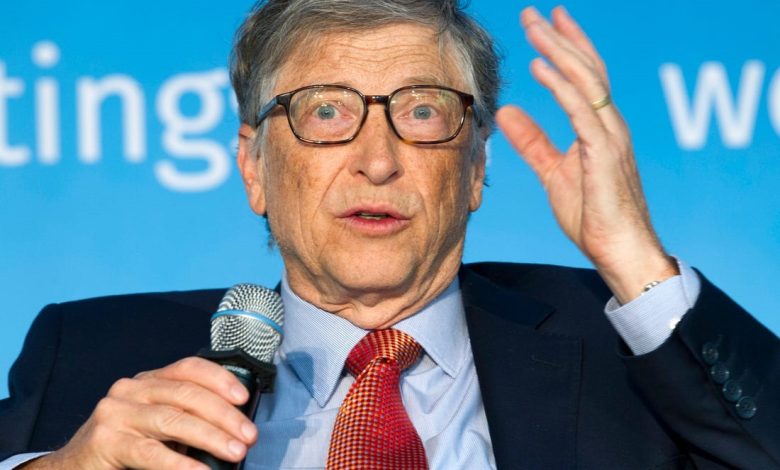News
Gates Foundation commits $2.5bn to women’s health research

Gates Foundation has committed $2.5 billion to accelerate research and development (R&D) focused exclusively on women’s health.
The foundation in a statement on Monday announced that the investments which run through to 2030, would catalyse innovation in maternal, menstrual, gynaecological, and sexual health for women globally
It disclosed that the support would advance more than 40 innovations in five critical, chronically underfunded areas—particularly those affecting women in low- and middle-income countries.
It submitted that women’s health R&D remained chronically underfunded, especially in areas such as gynaecological and menstrual health, obstetric care, contraceptive innovation, sexually transmitted infections (STIs) solutions (including HIV PrEP for women), and maternal health and nutrition.
The foundation referenced a 2021 McKinsey & Company report which showed that one per cent of healthcare research and innovation is invested in female-specific conditions beyond oncology.
Critical issues like preeclampsia, gestational diabetes, heavy menstrual bleeding, endometriosis, and menopause, which together affect hundreds of millions women, remain deeply under-researched.
Dr Anita Zaidi, President, Gates Foundation’s Gender Equality Division, said, “For too long, women have suffered from health conditions that are misunderstood, misdiagnosed, or ignored.
“We want this investment to spark a new era of women-centred innovation—one where women’s lives, bodies, and voices are prioritised in health R&D.
“This is the largest investment we’ve ever made in women’s health research and development, but it still falls far short of what is needed in a neglected and underfunded area of huge human need and opportunity.
“Women’s health is not just a philanthropic cause—it’s an investable opportunity with immense potential for scientific breakthroughs that could help millions of women.
“What’s needed is the will to pursue and follow through.”
Similarly, Bill Gates, Chair of the Gates Foundation, said “Investing in women’s health has a lasting impact across generations.
“It leads to healthier families, stronger economies, and a more just world.
“Yet women’s health continues to be ignored, underfunded, and sidelined. Too many women still die from preventable causes or live in poor health. That must change. But we can’t do it alone.”
To close persistent gaps in funding and research, the foundation urged governments, philanthropists, investors, and the private sector to co-invest in women’s health innovations, help shape product development.
It also urged them to ensure access to treatments for the women and girls who need them most.
The foundation disclosed that the five priority areas were selected based on a combination of data and evidence about where innovation can save and improve the most lives.
It emphasised that it was a direct insight from women in low- and middle-income countries about their needs and preferences, and the persistently high rates of misdiagnosis caused by gaps in medical knowledge and training.
It also reflects the unique challenges faced in low-resource settings, making these areas especially ripe for broader public and private investment to drive meaningful, scalable impact.
Professor Bosede Afolabi, Professor of Obstetrics and Gynaecology at the College of Medicine, University of Lagos, said, “We see the consequences of underinvestment in women’s health innovation every day when women suffer needlessly, and sometimes lose their lives, because of the gaps in how we understand and treat conditions that uniquely affect them.
“This commitment brings much-needed attention to the health challenges women face in places where resources are most limited and the burden is highest.
“It reflects a recognition that women’s lives—and the innovations that support them—must be prioritised everywhere.”
By addressing long-standing gaps in women’s health, the investment aims to unlock broader social and economic gains.
Research shows that every $1 invested in women’s health yields $3 in economic growth, and closing the gender health gap can boost the global economy by $1 trillion per year by 2040.
The R&D commitment complements the foundation’s work supporting the scale-up and delivery of women’s health commodities, vaccines such as the HPV vaccine, and child health.



